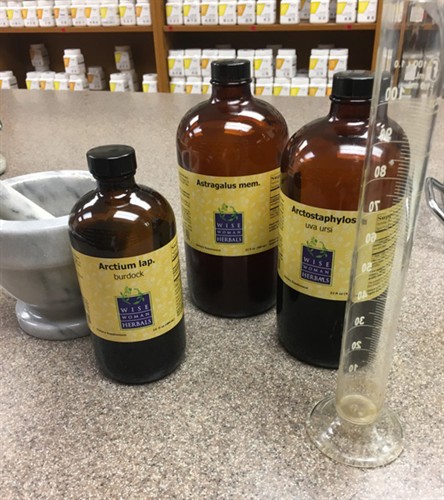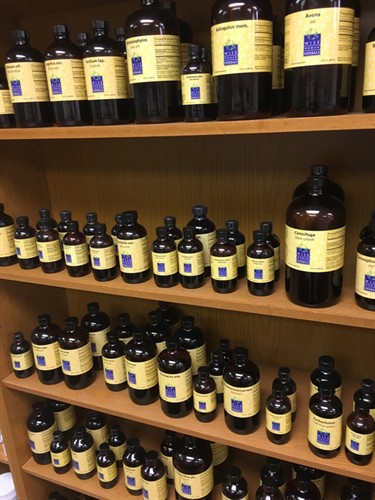Botanical medicine is a significant aspect of our naturopathic curriculum. At NUHS, we have three botanical medicine classes that cover hundreds of herbs. I’m currently taking Advanced Naturopathic Botanical Prescribing to learn how to appropriately prescribe botanicals that are research-based for a patient’s condition. Every week, we have to formulate a botanical tincture based on reading a case study, including the goals and rationale of treatment.

Goals of treatment are related to the action the botanicals need to have. We usually will have a few actions to accomplish based on one case study. Also, each botanical carries several actions. A few of the many actions are listed below:
- Nervine calms the nerves. This can further be broken down into relaxants, stimulants and tonics.
- Expectorant expels mucous from the respiratory system.
- Carminative reduces gas and intestinal cramping.
- Galactogogue increases breast milk production in lactating women.
- Tonic strengthens an organ or system to which it has an affinity.
- Vermifuge expels worms/parasites from the intestines.
- Cholagogue promotes bile flow from the gallbladder.

Botanical medicine is one of the main distinguishing features between allopathic and naturopathic medicine. In allopathic/osteopathic medical school, students may be taught some general herbs that are common such as ginger and turmeric, but they don’t have formal classes on botanical medicine. In naturopathic medical school, we have about 150 hours of class time to thoroughly learn about the actions, constituents and clinical applications of botanicals using research-based science.




0 Comments